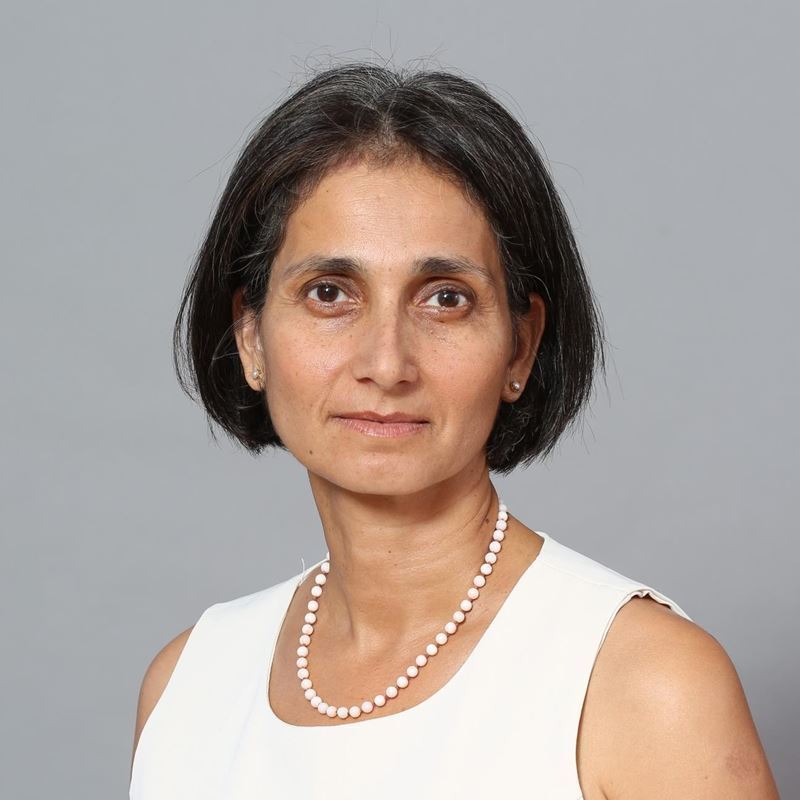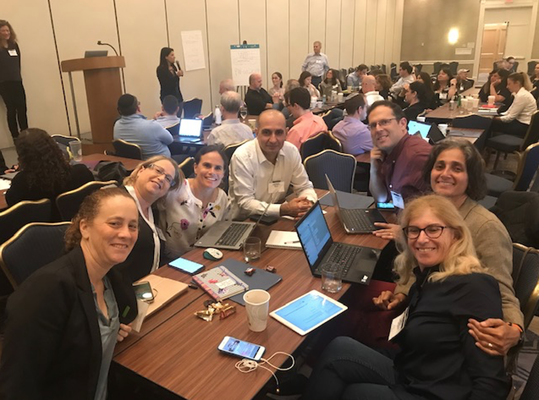The Wexner Foundation Summit on Gender brought together a group of Israelis and Americans in Virginia at the end of 2019, all of us alumni of the Foundation’s various programs and all invested in the promotion of gender equality.
After the three-day seminar, the operative objective was to build a plan that we could present within a year. We joined forces to create a team that would design an early childhood gender educational program with the understanding that instilling gender equality starts at a young age. We had far-reaching visions and a full schedule of meetings with experts in the field, but reality had other plans and we were faced with the COVID-19 crisis forcing us to deal with a significant adaptive challenge. It seemed that sticking to the original plan in the shadow of a global pandemic that brought with it a set of new challenges would be irrelevant and would defeat the purpose.
A brainstorming session led to the understanding that a global crisis can also be a productive opportunity to reassess our plans and try to think of how to adapt them to the new reality with the intention of achieving a stronger impact. We got the team together and established weekly meetings (on Zoom). As several activities were running at the same time, we merged with other Summit groups, all of whom had come across similar challenges.
Because of the COVID-19 pandemic, there were immediate consequences felt all over the world; the increase of gender gaps and the expansion of gender equality.
The group decided to focus on leveraging the new challenges the COVID-19 crisis raised: to act towards their diminution – in the short and long term. In the present reality in Israel, it seemed that the fight against the Corona pandemic took on a military nature by default, a fact that placed generals and military leaders at the helm of the crisis management. The immediate result was a blatant lack of female representation in the crisis response mechanisms. Upon realizing that for the short-term response there were already committees underway, we opted to focus on the longer term and capitalize on the added value we can offer as a diverse group of the Foundation’s alumni, coming from the civil service, the business sector and the public arena.
We set three main goals:
- Enabling working from home (telecommuting) for the public sector employees
We prepared a position paper that presented the advantages of telecommuting, especially for women, who are first to pay the price of the pandemic in terms of employment. The position paper explained not only the economic benefits of telecommuting, but also the social, mental and environmental contributions thereof. The paper was distributed to the relevant factors at the Civil Service Commission, resulting in the Ministry of Justice adopting the program and introducing it to all relevant decision-making bodies and obtaining support for the program from additional ministries and government agencies. Currently, it appears that our proposals are making headway and the Minister of Finance has even proclaimed one telecommuting day a week. The work that employees do at home will be determined and assessed as per productivity, enabling the expansion of services for the public and the reduction of motor air pollution, and ensuring mothers may continue earning wages despite the lack of solutions for their children on part of the education system. With the second wave of the Corona virus, the prospect that the program will be incorporated permanently into the public sector employment scheme is encouraging. Even labor unions have come to the realization that the emerging reality demands a change of pattern and are inclined to accept at least two days of telecommuting a week. - Assistance for small business owners
Under the assumption that women usually bear the lion’s share of domestic responsibilities, there is a spillover effect to the businesses of self-employed women. We were surprised to discover the gender bias when it came to approval of loans and financial aid for female-owned businesses and we are currently acting toward the incorporation of the gender parameter in decision-making processes in this area. - Changing the early childhood education system by addressing the needs of kindergarten teachers and assistants and reducing class size
This included advanced training to improve the professional quality and level of teaching, and the expansion of services by reducing class-size. Those who need early childhood education services, including the working population, are usually women from lower socio-economic levels, who are also the first to pay the price of the pandemic, mainly due to their inability to leave the house to work and to continue earning an income to support the family. The rationale was two-fold: to improve the earning potential for the educators and their assistants, while at the same time improving their own education and providing them with new skills, thereby providing better education for younger children. This ultimately allows for working mothers to put their children in educational institutions while they work.
These objectives were achieved by a work method that included:
- The recruitment of the Foundation’s graduates from different programs.
- Weekly group meetings.
- Assignment of teams and focused lobbying efforts.
Nearly a year after our meeting in Virginia, we demonstrated flexibility by deciding to adapt the scheme of our program to a new, unexpected reality. We were determined to produce high quality and professional outcomes and hope that we have managed to create an impact that will elevate women’s status as full partners of Israel’s society.
We are proud to have leveraged this challenging period (for ourselves as well) – in every sense of the word, whether occupational, financial, emotional and organizational – for the benefit of society and the promotion of gender issues. Perhaps it is due to the pandemic that we had the opportunity to address these issues and implement changes.
Currently, we are pursuing our goals through helping the Israel feminist movement, which includes dozens of social-feminist organizations that are trying to join forces and influence the social and welfare agenda in Israel regarding the female community in the country.
We wish to thank our team members: WSL Alumni Sigal Golan-Atir (2015), Yael Mevorach (2017), Kinley Tur Paz (2017), Kemel Mulla (2018) and Shmuel Hirschman (2016), WIF Alumni Tal Korman (Class 14), Leora Sidi (Class 29) and WIF Alit Weil-Shafran (Class 29). We also thank WSL Michal Tzuk (2015) for her consultation.


Get To Know The Authors
WIF Sharon Abraham-Weiss (Class 23) is Executive Director of the Association for Civil Rights in Israel (ACRI).
WIF Alum Orli Garti-Seroussi (Class 8) is a professional board member and an independent consultant specializing in public and nonprofit organizations. Currently she is serving as a board member in the Israel Electric Company, KAN – Israel public broadcast corporation, Meuhedet Health Services, Optibase Ltd, Gamatronik Ltd and Unet Credit Ltd.
Other posts by this author ›

